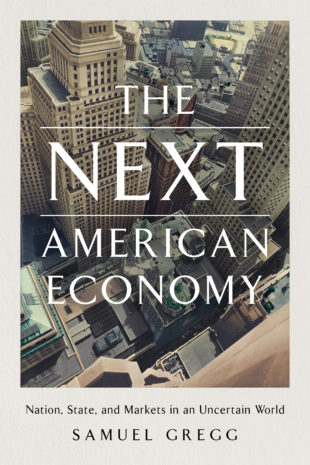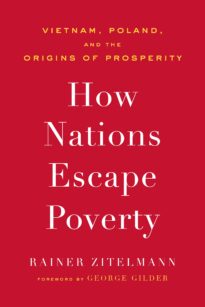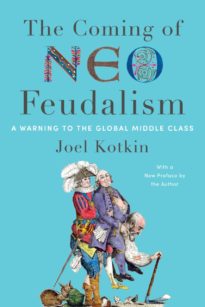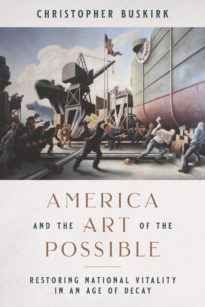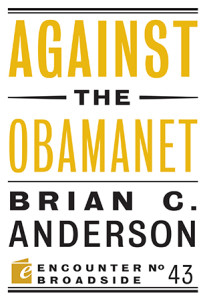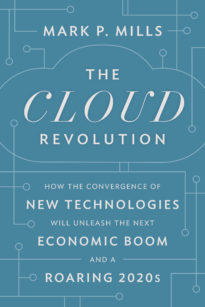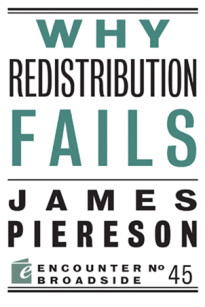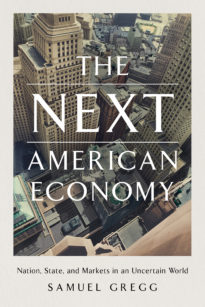In December 2016, I was speaking at a conference in London and the discussion inevitably gravitated towards the topic of Donald Trump’s election as forty-fifth president of the United States of America. It meant, I commented, that a free trade skeptic would be in the White House. At that point, a young French economist turned to me and said, “Mon ami, I thought that free trade was a done-deal . . . . Apparently, it isn’t. We took far too much for granted.”
As it turns out, it wasn’t just free trade with which many Americans were expressing frustration. A systematic questioning of the emphasis placed upon free markets in the American economy since the 1980s was underway, and not simply from progressives who looked to the New Deal or European social democracy for inspiration. Some of the market economy’s most articulate critics were to be found on the American right. In some instances, positions being advocated by some conservatives—implementation of industrial policy, mandating seats for employees on company boards, expanding the use of tariffs, etc.—bore more than a passing resemblance to stances adopted by progressives like Senators Bernie Sanders and Elizabeth Warren.
This corrosion of a pro-market consensus once shared by many American politicians, opinion-shapers, and citizens meant that the U.S. economy’s future was now up for discussion to an extent that had not been evident since the 1970s. That future forms the subject matter of this book.
For good reason, the words “America” and “Capitalism” are synonymous in many people’s minds. Yet some Americans today plainly doubt that the market economy—economic arrangements characterized by entrepreneurship, free exchange, competition at home, free trade abroad, strong property rights, robust rule of law, and a constitutional order that defines and limits the government’s economic responsibilities—is the optimal way forward for the U.S. economy. Other Americans say that they want less government in their lives and that markets should be allowed to work their magic, but then insist in the next breath that their particular community, business, town, or state merits federal assistance.
Since the mid-2010s, I have found myself embroiled in debates with people across the political spectrum who hold that America’s economy requires even more regulation and intervention beyond the already extensive role played by government in that economy. Sometimes the conversation has been with younger Americans who think that some type of socialism must be America’s economic future. But I have also had Wall Street executives tell me that “stakeholder capitalism”—an idea that draws upon an older economic model known as “corporatism”—should replace what they regard as an economy too fixated on profits.
In other instances, some conservatives have informed me that the time has come for interventionist measures, often labelled “populist” or “economic nationalist,” to be used to deliver specific economic outcomes. Such goals range from helping specific groups who, such conservatives claim, have been left behind by economic globalization, to bolstering America’s place as a sovereign nation in a world in which great power competition is magnifying. They and others are especially troubled by the rise of a China governed by a nationalist-communist authoritarian regime intent on displacing America on the international stage. This alone, many Americans aver, necessitates a serious rethink of economic policy in general and trade policy in particular.
This skepticism about free markets could not be more removed from the atmosphere which prevailed in America following Communism’s fall in Eastern Europe and the Soviet Union. The great rival to capitalism had failed comprehensively, and the subsequent rhetoric of many American thinkers and policymakers of the time suggested belief in a certain irresistibility to the advance of free markets. Many were also convinced that the case for mixed economies associated with the British economist John Maynard Keynes was faltering, perhaps in a decisive fashion.
That world seems very far away today. Instead advocates of market economies find their ideas subject to fierce critique on economic, political, and moral grounds, and they are derided by some of their opponents as “market fundamentalists.” Many defenders of markets have indeed couched their responses primarily in economic terms. Much of the debate, after all, pivots arounds questions of economic cause-and-effect and disputed facts about what is happening in the American economy and society more generally. But for all its force, the economic case for free markets cannot resolve all the apprehensions that many Americans have about their country’s future—one which cannot and should not be reduced to economics. Alas, when some free marketers do attempt to inject more explicitly normative and political dimensions into their defense of free economies, many of them seem unable to move beyond frameworks which absolutize individual autonomy and see no common values beyond utility or ever-expanding rights grounded in self-expression.
Yet however insufficient such answers may be to the criticisms expressed by assorted progressives, economic nationalists, and other advocates of greater state intervention, I regard the diagnoses of the economic problems facing America and the proposals for change offered by market skeptics as flawed—often deeply so. In some instances, implementation of their preferred policies would worsen some of the problems they seek to address. Considerable space is given in this book to explaining why.
That said, today’s critics of markets have performed an important service. They have forced those like myself who regard free markets as the most optimal set of economic arrangements for America to restate, once again, the case for markets but in a manner which recognizes that we are not living in the 1980s, 1990s, 2000s, or 2010s anymore. Over the past two decades, some of the most noteworthy changes in America’s political landscape have been associated with economic traumas like the 2008 financial crisis and Great Recession. Remaking the case for markets in America cannot disregard such realities. Nor can major developments in the geopolitical sphere be ignored. As nation-state competition intensifies across the globe, issues of national sovereignty, national cohesion, and, above all, national identity have become key reference points around which international politics flow. To pretend otherwise is quixotic.
It’s one thing to outline compelling policy positions. Market liberals are highly skilled at that. But such arguments are insufficient in an age in which questions like “Who are my people?” or “Where do I belong?” have become omnipresent in Western countries. People voted for Brexit for many reasons, but a desire to reassert national sovereignty and therefore a sense of belonging to one group rather than another was one strand uniting people who otherwise disagreed about many other issues. So too, Donald Trump’s 2016 electoral victory signified many Americans’ desire to prioritize what they saw as America’s needs over the globalist concerns that they believed had preoccupied their political leaders for far too long.
Recognizing this underscores the need to persuade Americans that markets aren’t just about economic growth. They can also help express and bolster an understanding of America as a commercial republic. This is an ideal of a republican form of political community that integrates a strong case for economic liberty into a vision of America as a free and commercially orientated sovereign nation in a world in which other sovereign nations are pursuing what they regard as their national interests.
It is also the ideal which, I believe, represents that the surest political underpinning for an American economy that takes free markets and their institutional supports seriously. As readers will discover, it brings together an understanding of the strong empirical case for free markets and limited government, a commitment to the moral habits associated with commercial society, the conviction that these are good for Americans as a sovereign nation, and the argument that this is ultimately faithful to the principles which were given powerful expression in America during the Founding period.
